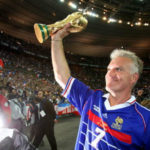The UK will expel 23 Russian diplomats after Moscow refused to explain how a Russian-made nerve agent was used on a former spy in Salisbury, the PM says.
Theresa May said the diplomats, who have a week to leave, were identified as “undeclared intelligence officers”.
She also revoked an invitation to Russia’s foreign minister, and said the Royal Family would not attend the Fifa World Cup later this year.
Russia denies being involved in the attempted murder of Sergei Skripal.
The Russian Embassy said the expulsion of 23 diplomats was “unacceptable, unjustified and short-sighted”.
Former spy Mr Skripal, 66, and his daughter, Yulia Skripal, 33, remain critically ill in hospital after being found slumped on a bench on 4 March.
Det Sgt Nick Bailey also fell ill responding to the incident, and is in a serious but stable condition, but is thought to be improving.
Moscow refused to meet Mrs May’s midnight deadline to co-operate in the case, prompting Mrs May to announce a series of measures intended to send a “clear message” to Russia.
Among them are:
The expulsion of 23 diplomats – who have one week to leave
Increased checks on private flights, customs and freight
The freezing of Russian state assets where there is evidence they may be used to threaten the life or property of UK nationals or residents
Ministers and Royal Family to boycott the Fifa World Cup in Russia later this year
The suspension of all planned high level bi-lateral contacts between the UK and Russia
Plans to consider new laws to increase defences against “hostile state activity”
Mrs May told MPs that Russia had provided “no explanation” as to how the nerve agent came to be used in the UK, describing Moscow’s response as one of “sarcasm, contempt and defiance”.
She said the use of a Russian-made nerve agent on UK soil amounted to the “unlawful use of force”.
The PM, who was earlier briefed by senior intelligence chiefs in Downing Street, added there was “no alternative conclusion other than that the Russian state was culpable” for the attempted murder of Mr Skripal and his daughter.
She said it was “tragic” that Russian President Vladimir Putin had “chosen to act in this way”.
The foreign office has updated its advice on travel to Russia, saying “heightened political tensions” mean Britons should “be aware of the possibility of anti-British sentiment or harassment at this time”.
Meanwhile, police and army have sealed off areas of Gillingham, Dorset, as part of the attempted murder investigation.
They have cordoned off an area surrounding a truck, which it is thought recovered Mr Skripal’s car from Salisbury, about 20 miles from Gillingham.
About 180 troops have been deployed to Salisbury to assist with removing vehicles and objects from affected areas, while the Zizzi restaurant and Bishop’s Mill pub where the Skripals visited before falling ill remain closed.
Russian Foreign Minister Sergei Lavrov accused Britain of “playing politics” and ignoring an international agreement on chemical weapons.
He said Moscow would co-operate if it received a formal request for clarification from the UK under the Chemical Weapons Convention, which sets a 10-day time limit for a response.
The UK is to brief the UN Security Council on the investigation at 19:00 GMT, and earlier met Nato’s North Atlantic Council.
At the meeting, Nato allies expressed “deep concern” at the use of a nerve agent and said it was a “clear breach of international norms and agreements”.
Mr Skripal, who came to the UK in 2010 as part of a “spy swap” after he had been convicted by Russia of passing information to MI6, is a British citizen.







